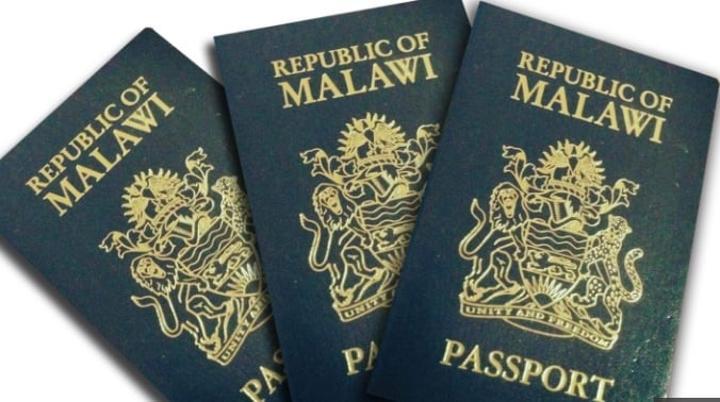By Catherine Chimzimu
Africa-Press – Malawi. The Anti-Corruption Bureau (ACB) has stepped up its investigation into a controversial K52 billion ($29.9 million) passport printing contract awarded to Madras Security Printers Private Limited (MSP), an Indian company facing corruption allegations and failed projects across multiple countries.
At the centre of the probe is Indian businessman Abdul Master, a prominent figure in Malawi’s business community and the head of Worldwide Construction Company.
ACB Investigators believe Master may have used his influence or possibly coercion to sway officials within the Ministry of Home Affairs and other departments to award the contract to MSP.
Sources close to the case say the ACB has uncovered “compelling prima facie evidence” of “massive bribery and entrenched corrupt practices”.
The investigation has now expanded to include officials from both the Ministry of Home Affairs and the Public Procurement and Disposal of Assets Authority (PPDA).
“We are scrutinising every signature, meeting, and communication,” said one source. “The goal is to determine the extent to which procedures were bypassed and due diligence ignored.”
For several days Master could not be reached for comment.
A Pattern of Procurement failure
The government’s March 2025 decision to award the passport contract to MSP sparked widespread public outrage. The backlash follows a string of failed procurement efforts that have crippled passport services and exposed the country to serious national security risks.
The crisis began in 2021, when a $60.8 million deal with TechnoBrain was cancelled over irregularities. This created a nationwide passport shortage.
In 2023, the government turned to TechnoBrain again for a temporary fix, but that deal soon collapsed. Another company, E-Tech Systems, was briefly hired, only to exit within months, worsening the backlog.
The situation hit rock bottom in February 2024, when Malawi’s entire passport issuance system crashed. President Lazarus Chakwera told Parliament that “digital mercenaries hacked the system and are demanding ransom.”
That claim was met with scepticism due to the lack of technical details. Some officials suggested TechnoBrain itself may have taken the system offline after detecting unauthorised access possibly by government insiders and was now demanding payment. No credible evidence has confirmed this theory.
The MSP Deal raises Red Flags
Despite the uncertainty, Homeland Security Minister Ezekiel Ching’oma defended the MSP deal, calling it “cost-effective” and noting that it emerged as the winner of a restricted tender involving six shortlisted firms four Malawian and two foreign from an initial 25 applicants.
However, those reassurances did little to calm public concern. Key oversight institutions, including the PPDA and Attorney General’s office, were reportedly unaware of the contract’s terms.
Attorney General Thabo Chakaka Nyirenda told reporters he was “blank” on the deal and that it hadn’t yet reached his office for legal review a shocking admission for a project of such importance.
A Troubling International Track Record
Madras Security Printers has a history of failed contracts and scandal across the globe:
Kenya: MSP was linked to fake tax stamps that led to toxic goods such as counterfeit fertiliser and sugar entering the market. Legal cases followed.
South Sudan: A tax stamp system collapsed after millions were paid. It never functioned.
India: MSP was reportedly blacklisted over violations during a national ID project, with allegations it sold citizens’ data without authorisation.
Liberia, Sri Lanka, Bangladesh, Mauritius: Similar failures and accusations of bribery, contract violations, and data breaches.
Abdul Master under the Microscope
While the ACB is currently focused on Master’s alleged involvement in the MSP deal, his broader business activities especially through Worldwide Construction Company have long drawn attention from journalists and civil society watchdogs.
Although the company hasn’t been publicly linked to any confirmed scandals, its regular involvement in government contracts has made it a subject of continued scrutiny.
Investigators are expected to review financial transactions, emails, and meeting records to determine whether any inducements were used to influence the tender. They are also likely to examine past contracts with the government to map out Master’s broader network.
Security and Sovereignty at Risk
Security experts warn that MSP’s involvement could pose a serious threat to national security. The company’s track record raises fears that Malawi’s biometric passport system and its citizens’ sensitive personal data could be vulnerable to leaks, misuse, or cybercrime.
These fears have already had international consequences.
Reports indicate the U.S. government placed Malawi on a “watchlist,” giving it 60 days to fix weaknesses in its passport system. This move followed revelations that Nigerian businessman Dozy Mmobuosi later convicted in the U.S. for large-scale fraud had obtained a Malawian diplomatic passport under questionable circumstances.
The case shocked international observers and exposed major weaknesses in Malawi’s vetting process.
The combination of a flawed procurement process, a discredited contractor, and mounting corruption allegations has left the public demanding transparency and accountability.
With the integrity of national documents, the safety of personal data, and Malawi’s global reputation on the line, the pressure is on for authorities to act swiftly and restore public trust.
Source: Malawi Nyasa Times
For More News And Analysis About Malawi Follow Africa-Press






